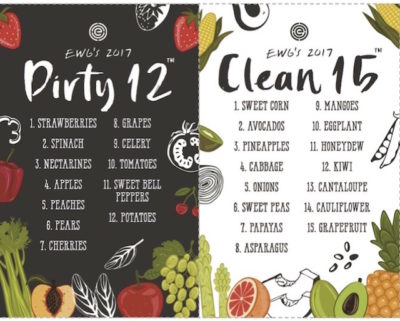Today is Earth Day! It’s an annual event that takes place on April 22nd. Organized and founded by Senator Gaylord Nelson, and first celebrated in 1970 focused on the United States, it was taken internationally in 1990. Earth Day events in more than 193 countries are now coordinated globally by the Earth Day Network.
What can you do to make a difference on this day, and perhaps continually? Here are 10 tips to get you started:
- Make today a meatless day! Everything we eat has an environmental footprint – it takes land, water and energy to grow crops and raise livestock. The World Resources Institute has calculated the greenhouse gas emissions associated with producing a gram of edible protein of various foods. And, what they found was that foods such as beans, fish, nuts and egg have the lowest impact. Take the pledge to not eat meat one day a week and become a part of the Meatless Monday movement!
- Plant a tree! Planting trees is one of the easiest and most important ways to fight climate change. Deforestation contributes to species extinction, poverty, and is responsible for up to 15% of the global greenhouse gas emissions causing climate change. ONE DOLLAR = ONE TREE. Make a donation, here!
- Stop using disposable plastic! Unfortunately, only about ten percent of plastic produced each year to make bags, bottles, packages, and other commodities for people all over the world is properly recycled and reused. The rest ends up as waste in landfills or as litter in our natural environment. Take the pledge to switch to sustainable alternatives, such as glass or stainless steel, and reduce the amount of disposable plastic you use!

- Limit your conventional produce intake! Conventionally grown produce are high in organophosphate pesticides (including RoundUp). Buy organic whenever possible! Avoid the fruits and vegetables on EWG’s Dirty Dozen list. Stick to the Clean 15!
- Drink filtered water! Tap water is high in contaminants such as mercury, chloramine, ammonia, fluoride, lead, nitrates, nitrites and many others.
- Stop using air fresheners! Phthalates and 1,4-Dichlorobenzene are chemicals found in air fresheners to cause birth defects, increase rates of asthma, lung damage and cancer
- Check your bathroom! Harmful ingredients in toothpastes and liquid soaps, such as anti-bacterials and triclosan (a pesticide), have been linked to increase the likelihood of developing breast cancer. Read the label and choose healthier alternatives from your local health food store.
- Get rid of CFLs! Compact fluorescent light bulbs contain mercury. When broken, you must handle and dispose of with care. If you must use them make sure there is no danger of breaking near children. Opt for LEDs (light emitting diode) instead.
- Watch out for foam furniture! Foam products (like stuffed furniture and mattresses) are often treated with toxic fire retardants, so keep them well covered. And, don’t “protect” your fabrics and carpets with sprayed on chemical coatings – simply clean spills quickly.
- Lookout for lead! If your home was built before 1978, it probably contains lead paint. Choose low VOC (volatile organic compounds) paints and always paint with the windows open for good ventilation.
Sources: Earth Day Network, National Public Radio, Environmental Working Group
